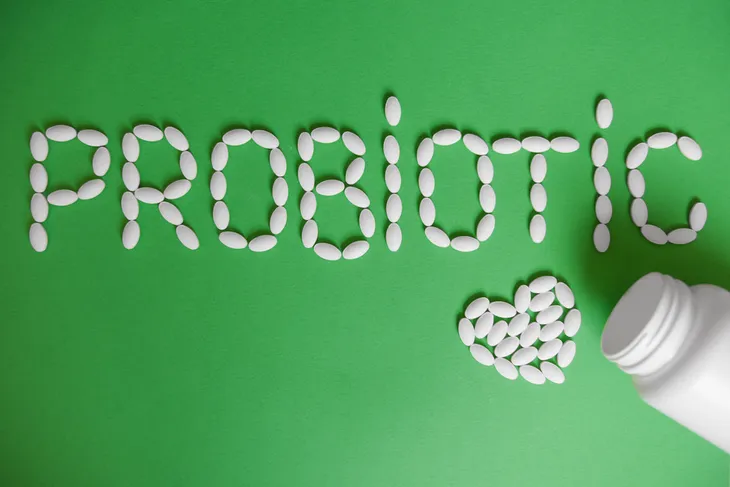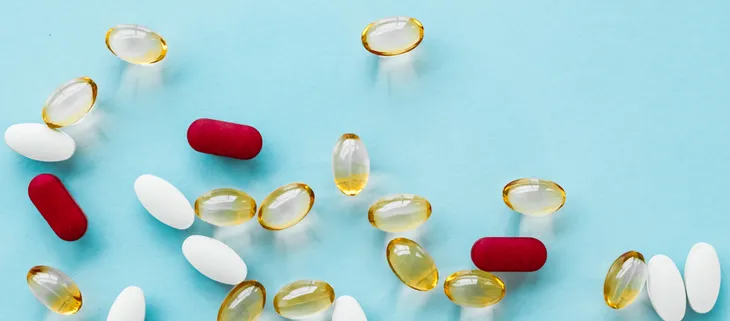Most of us have heard about probiotic supplements and some of you may even be taking them, but do you know what they actually do? Probiotics have been a staple of the human diet for over 10,000 years. Despite all that history, there remains a ton of misconceptions and mistruths surrounding this powerful dietary component.
So what are probiotics, how do they work and what are the most common side effects? It’s about time we take a look!
What Are Probiotics?
The word probiotic means “for life” in Latin. Though they’ve played an essential role in the dietary composition of humans across all cultures, their significance is still relatively misunderstood.
When you hear the word probiotic, think “good bacteria”. Not to be confused with the infection-causing kind. Probiotic bacteria gets rid of the extra bad bacteria to bring your gut back into balance. Why is that important? Well, the bacteria in your gut plays an essential role in your digestion and your immune system.
Poor gut health, or unbalanced gut microbiota, is linked to a fast-growing list of health complications including digestive problems and infections. New evidence suggests that even mood disorders like anxiety and depression are tied to gut bacteria.
The Benefits of Probiotics
Maintaining a healthy balance of good bacteria in your body is a matter of consuming a proper balance of probiotics. Good bacteria fight off bad bacteria, keeping you healthy and full of energy.
More than just boosting your immune system, a steady stream of probiotics can help your body digest food more efficiently, they synthesize healthy vitamins within your body, they protect your bad bacteria from entering your blood, and they help break down and absorb medications.
The most important takeaway is, of course, that maintaining a healthy balance of good bacteria in your gut is critical to maintaining a healthy lifestyle.
Where to Get Probiotics
As previously mentioned, humans have been cultivating and consuming probiotic-heavy foods for thousands of years. As a result, you’re spoiled for choice at most supermarkets. The probiotic bacteria most commonly found in stores are lactobacillus and Bifidobacterium and can be consumed in all sorts of ways.
Yogurt, buttermilk, sourdough bread, cottage cheese, kombucha, tempeh, fermented pickles, fermented sauerkraut, kimchi, and miso soup are the most popular ways to supplement probiotics. However, these aren’t your only options. Probiotic supplements are also available via capsules, pills, and powders which can be found at most health food stores.
Side Effect: Digestion Issues
Probiotics and digestive health are intertwined in countless ways. Probiotics can offer many benefits. This includes easing the symptoms of digestive issues like colic, constipation, inflammatory bowel disease, irritable bowel syndrome, lactose intolerance, and ulcerative colitis. But there are some side effects you should be aware of too.
Gas, bloating, stomach cramps, or a general feeling of fullness are symptoms commonly associated with the first few days of probiotic consumption. Thankfully, the symptoms are relatively minor, and they usually pass within a few days.
Side Effect: Headaches
Headaches, dizziness, and brain fog are among the main neurological symptoms commonly associated with probiotics. Now, these symptoms aren’t particularly common, and their root cause remains unknown. One outlook suggests that the culprit is from intestinal inflammation, while others still blame amines (a common byproduct of the fermentation process).
Either way, these symptoms typically only last a day or two as well. It’s recommended that you increase your water intake and reach out for professional help if the problem persists for longer than 48 hours.
Side Effect: Increased Histamine Levels
In some cases, probiotics can lead to an increase in the body’s histamine levels. Which can be particularly troublesome for those with histamine intolerance.
Histamines are a naturally occurring molecule that’s commonly produced by your immune system. Now, these levels tend to rise when the immune system detects a threat, though in this particular case, the source is the bacterial strain used in the probiotic.
Consumers with histamine intolerance can avoid this problem by avoiding supplements that rely on histamine-producing bacteria.
Side Effect: Allergies
Adverse reactions to probiotics aren’t uncommon. This is because the supplements can sometimes also contain soy, egg, dairy, lactose, and yeast. Those with lactose intolerance may experience gas and bloating if they’re taking dairy-based probiotics like yogurt or kefir.
Adverse reactions to symbiotic supplements, or supplements that contain both pre and probiotics, are also quite common. Though the reaction to these particular gut-focused supplements is relatively mild, maintaining a better understanding of the signs and products can help you avoid discomfort.
Side Effect: May Increase Infection Risk
People with suppressed immune systems, venous catheters, lengthy hospitalizations, or those who are in recovery following a recent surgery should practice increased vigilance when monitoring their symptoms. That’s because the bacteria and yeasts contained within probiotics can sometimes enter the bloodstream and cause infections to those susceptible.
The good news is those who experience complications may benefit from antibiotics and antifungals. Treating this side effect is essential because if left untreated, it could be fatal.
Should You Try Them?
Now that you’ve learned more about probiotics you might be asking, should I try them? That’s a very personal question that only you can answer.
Thankfully, the side effects listed here are altogether rare, and probiotics are generally safe for most individuals. That said, you should always consult your doctor before introducing new supplements into your diet.












